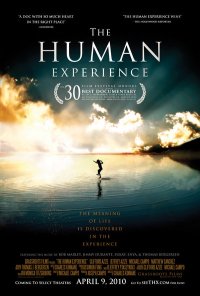If you’ve been reading this blog for a while, you know that Blessed James Alberione is a huge hero of mine. As the Founder of the Pauline Family (including my congregation, the Daughters of Saint Paul), Alberione has always been a dynamic visionary whose holiness, profound spirituality, commitment to evangelization, wisdom, and leadership have guided me on my spiritual and apostolic journey. If you engage with media on any level, Alberione will probably become your hero, too, once you get to know him. Why?
Because he’s the first priest to so clearly see how the media are tremendous gifts for bringing the world to Christ and Christ to the world that he actually did something about it: he founded two religious congregations dedicated exclusively to communicating Christ.
Because his spirituality is not abstract or esoteric, but for real people living real lives today.
And because this is how three recent Popes have talked about him:
* Blessed Paul VI: “A marvel of our times”
* St. John Paul II: “The first saint of the new evangelization”
* Pope Francis: “That great apostle of communications”
If you engage with media of any kind as a producer, writer, graphic designer, artist, marketing, cinematographer, filmmaker, publisher…Blessed James Alberione is definitely someone you want to know!
Media Apostle: The Father James Alberione Story was eight years in the making, and I was privileged to consult with the filmmakers at several points–both in the early writing stage and later editing stages. I have already seen it numerous times, yet each time I’ve been inspired anew.
Here are 10 reasons I love this film and why you will want to watch it!
10. You want to know the fascinating story of this unlikely teen, kicked out of the seminary for excessive use of the media who then turned his life around, put the media at the service of the Church, and who will someday be a household name for every Catholic
9. You can choose between the two versions of the film, depending on how much time you have and how much depth you want to go into. (Better yet, watch the 50-minute version first, then fill in the details with the 90-minute Director’s Cut!)
8. Catch the vision of how the Church views media from the expert who pioneered the Church’s embrace of media as gifts from God
7. Be inspired how to prioritize your relationship with God in a hectic, media-saturated life by this busy, frail priest who founded 10 institutes and oversaw a burgeoning international press, yet prayed up to six hours a day
6. Discover Alberione’s secret of how holiness & media go together, in his spirituality for today that is holistic and engaged with our times
5. See and feel the support of today’s members of the Pauline Family, who, in the film, share how Alberione’s legacy continues to shape their lives and the world
4. Those of us living in our media world need this introduction to his profound media spirituality: from a man of action who was also a mystic!
3. Blessed James Alberione’s Christ-centered, Marian-enlivened, Pauline spirituality is especially geared to communicators, and is centered on God’s greatest communication with us: the Eucharist
2. Alberione’s approach to media–engage the whole person!—is the perfect approach for those of us who produce media today. Watching this film can help us become better followers of Christ, and more professional media artists.
1. Come to know and claim Blessed James Alberione as your saint, who promised to pray for you when you use the media.



